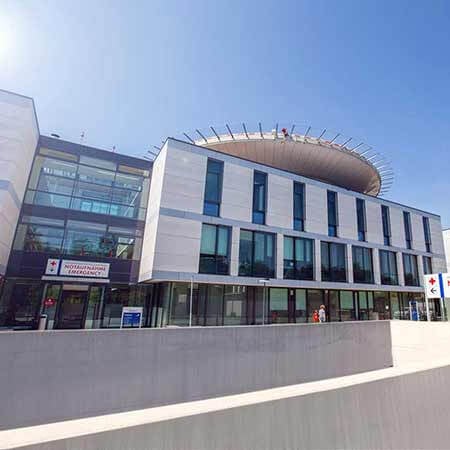About the disease
“A brain tumor of unknown etiology” is the term used to describe an as-yet unidentified formation in the brain. It is quite common for such tumors to appear, and it is often necessary to have a sample of the tumor analyzed under the microscope. This can determine the nature of the tumor, as well as the type of cells it developed from.
Brain tumors of unknown etiology are usually benign and they rarely metastasize. They develop in the brain, which is the most important organ in the central nervous system. Together with the spinal column, all bodily functions are controlled by the brain, including thinking, moving, speaking and concentrating. If a brain tumor of unknown etiology appears in the brain, it can have a detrimental effect on these vital functions. In some cases, memory processes can be affected. Whether long-term or short-term memory will be affected, and whether or not it can be restored, is always unpredictable. Some patients may become forgetful or inattentive to details, while others may lose their concentration and coordination skills.
A brain tumor of unknown etiology can be either low-grade or high-grade. The former, which is more common, develops slowly, while the latter develops quicker and there is a higher risk of metastasis. These tumors can also be either primary (the tumor initially originated in the brain cells) or secondary (the tumor developed in another part of the body and spread to the brain in its progressed stage). If the nature and cause of the brain tumor is unclear, doctors may try various treatment methods, to see which one is the most likely to lead to the patient’s recovery.
Symptoms
- Headaches
- Seizures, in some cases
- Muscle twitching, in some cases
- Loss of some of the bodily functions
- Poor coordination
- Poor memory
- Changes in sensation
- Nausea
- Vomiting
- Dizziness
- Fatigue
- Weakness
- Insomnia or sleeping too much
Diagnosis
- During a general examination, the doctor will ask the patient whether they have had any headaches recently. If so, the doctor will ask about the nature of the headaches, their frequency, intensity and exact location.
- The doctor will ask the patient whether they have had any problems with sleeping or concentration and coordination.
- Imaging tests, such as an MRI and CT scan, are the most helpful in determining the size of the tumor and its exact location. These tests can also help to identify whether any surrounding structures have been affected by the tumor.
- A biopsy, whereby a tissue sample is examined under a microscope, can also be useful in determining the type of brain tumor it is, as well as the cells it originated from and its nature.
Treatment
- Surgical resection aims to remove the tumor in order to prevent it from growing. This surgical procedure also stabilizes any of the brain structures that could have been affected by the tumor.
- Drainage may be recommended if the brain tumor caused bleeding to occur.
- Radiation therapy may also be required to shrink the tumor and prevent it from growing.
Authors: Dr. Nadezhda Ivanisova, Dr. Sergey Pashchenko















